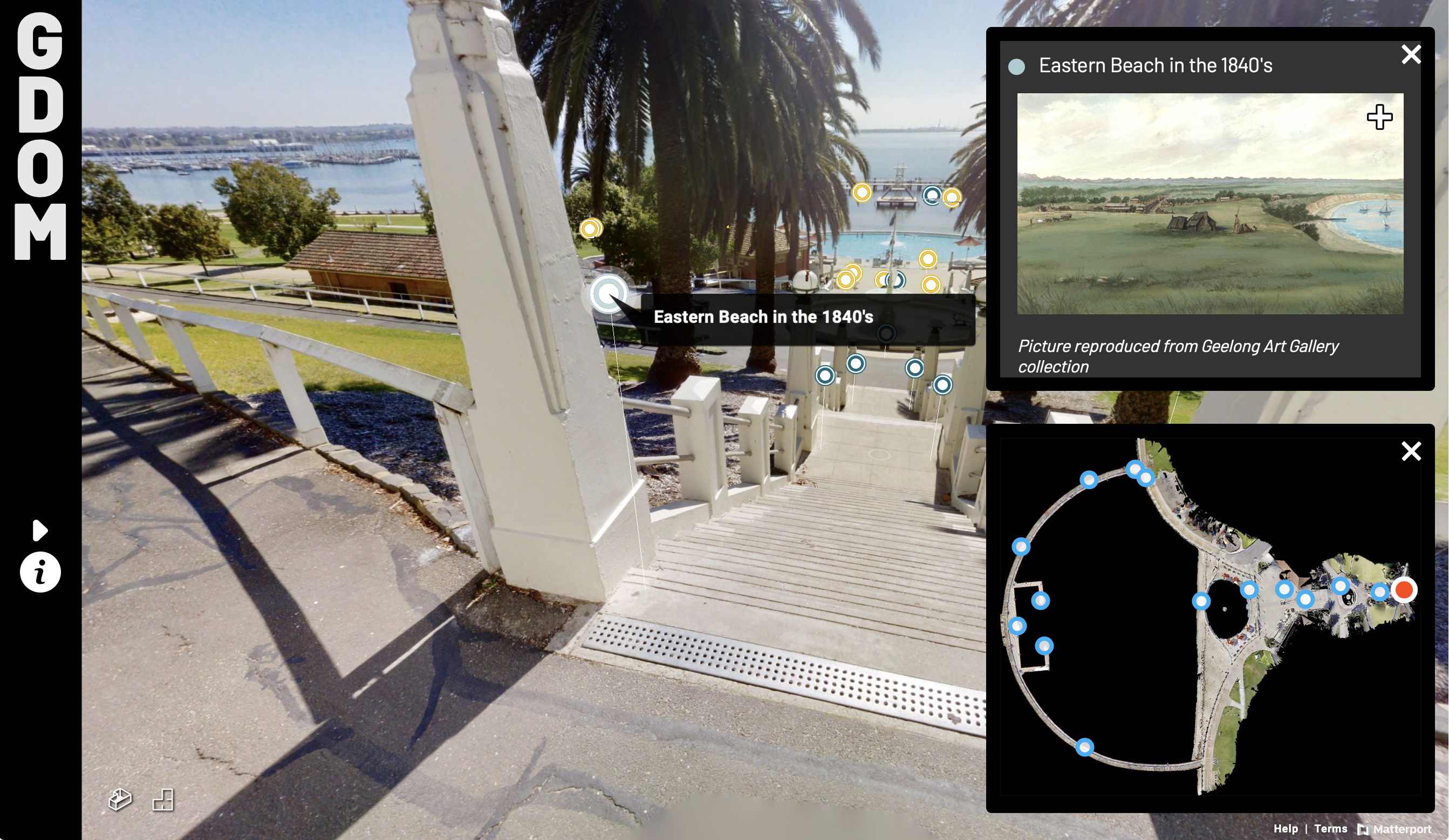Deakin’s MInD Lab specialise in ethical, intelligent technology. We sat down with Dr Domenico Mazza, a research Fellow within the Lab, to talk storytelling, digital placemaking and imagination.
The digital world is like a vacuum. Although it gives us greater access to information and the ability to speak virtually with loved ones, it’s primary purpose is to suck us in – who else has fallen into the belly of the internet, washing up hours later on some niche webpage or the tail end of a YouTube bender?
But the virtual world doesn’t have to look like this. Instead of pulling you into its depths, what if it were to spin you back out into the physical space?
This kind of ethical technology is what the folks at Deakin University’s Mediated Intelligence in Design (MInD) Lab specialise in. Fusing design principles with existing technology, they seek to give built environments – both physical and virtual – the human touch.
We sat down with Dr Domenico Mazza, a research Fellow within the Lab, to talk storytelling, digital placemaking and imagination.
True user-centred design
Imagine Google Earth, the software that lets you walk the streets of a city on the other side of the world. Now make it limited to Geelong, and twice as interactive; you pass a streetlamp and get a prompt to learn how manufacturing influenced the town’s growth. Turning up a side street reveals that the city used to have a public tram system, which has given way to buses and trains.
You should be picturing something similar to the Geelong Digital Outdoor Museum (GDOM), one of the MInD Lab’s latest projects. Having premiered earlier this year during Geelong Design Week, it’s like an interactive treasure map, taking you on a scavenger hunt around the city.

An exercise in collective memory, the GDOM explores how we maintain connections to a physical place by telling stories about it. In partnership with the City of Greater Geelong, historical narratives were pulled together from the local arts, culture and heritage collection communities.
The GDOM is a light, fun app that can be enjoyed on a computer, tablet or phone, while you’re meandering around the city or from the comfort of your home – which is perfect in an era when the ebb and flow of lockdowns can prevent us from venturing further than our own backyards.
Most importantly, it’s a virtual world that’s designed to spin you back out into the real one. As Dr Mazza points out, the GDOM is no replacement for physically exploring the city.
“Rather than being a repository of the area, the app is a conduit to these places, and can act as your guide while you’re there.”
Design thinking – but make it unexpected
The MInD Lab are a proudly interdisciplinary group of researchers, with expertise ranging from IT and the virtual environment, to architecture and manufacturing. But if there’s anything that underpins their work as a whole, it seems to be curiosity and an ability to think outside the box.
“We work on a small scale to test out ideas,” Dr Mazza says. “That’s our contribution to research; we run little experiments and work with partners that have interesting problems to solve.”
Because of this, the Lab aren’t known for their new, groundbreaking technologies. Instead, their ethos is centred on improving systems that already exist. Across their projects, you’ll find the Lab doing what they do best; elevating existing technologies by considering the broader needs of the people who use them.
With a background in graphic design and computer science, Dr Mazza specialises in making communications more creative and interactive. But his work isn’t confined to the digital realm.
“Virtual, as a concept, doesn’t just mean digital. It means imagination, dreams – that intangible, incorporeal stuff that’s outside your body. This is what drives me and my work.”
He says that, although most of the Lab’s projects are concerned with technology, their overarching purpose is to apply design thinking at a high level, and in unexpected ways.
Combine that with their various disciplines, and their work becomes very interesting indeed.
All the building’s a stage
So, what’s next for the MInD Lab? Dr Mazza says their next collaboration will be with the team behind the Geelong Arts Centre, which is currently undergoing redevelopments.
It’s the perfect opportunity for the Arts Centre to break away from the traditional model of what an arts and theatre complex can be and incorporate augmented reality and sensing technologies into the new design.
Dr Mazza says it’s an ambitious project, but also an exciting one.
“We’re looking to implement spatially intelligent design work into the Arts Centre. We’re in the very early stages of the project, but we know we want to make the space easier to navigate, and more engaging for the general public.”
The Lab are particularly interested in how artists and audience members work to create a theatrical experience together, and how technology could be used in this process.
For instance, imagine standing outside the Arts Centre, looking up at a rehearsal space on the fourth floor. Imagine being able to see through the skin of the wall to the performance happening behind it. Imagine being able to change the lighting or backdrop while you’re outside, affecting the action happening inside.
This is just one possible way that intelligent surfaces could change the way we experience theatre. Dr Mazza says features like this could help performers and arts administrators alike to understand how an audience interacts with the space, and their feelings about a performance.
“Fundamentally, we’re trying to break down the fourth wall in different ways. Instead of reflecting on an experience through social media and just clicking the Like button, we want audience members to engage with the performance in a meaningful way.”
Dr Domenico Mazza is a research Fellow within the Mediated Intelligence in Design (MInD) Lab at Deakin University.



